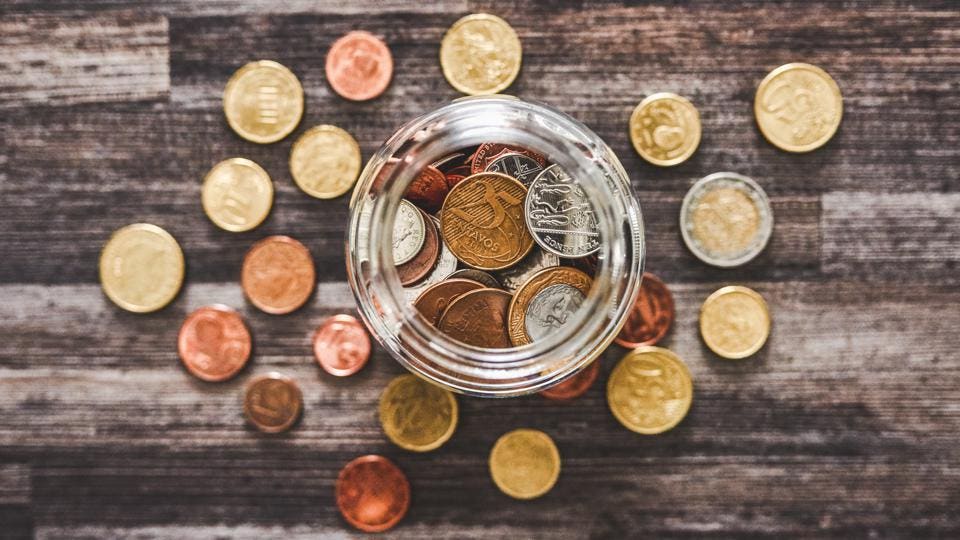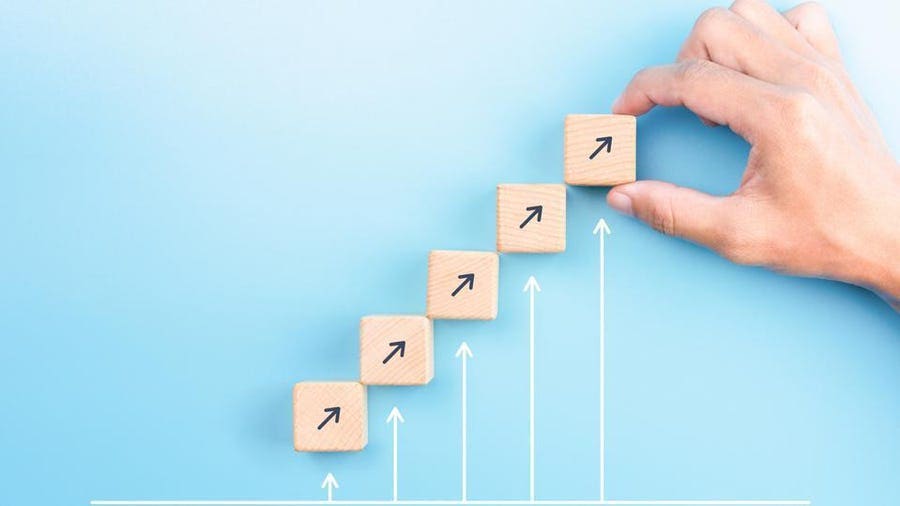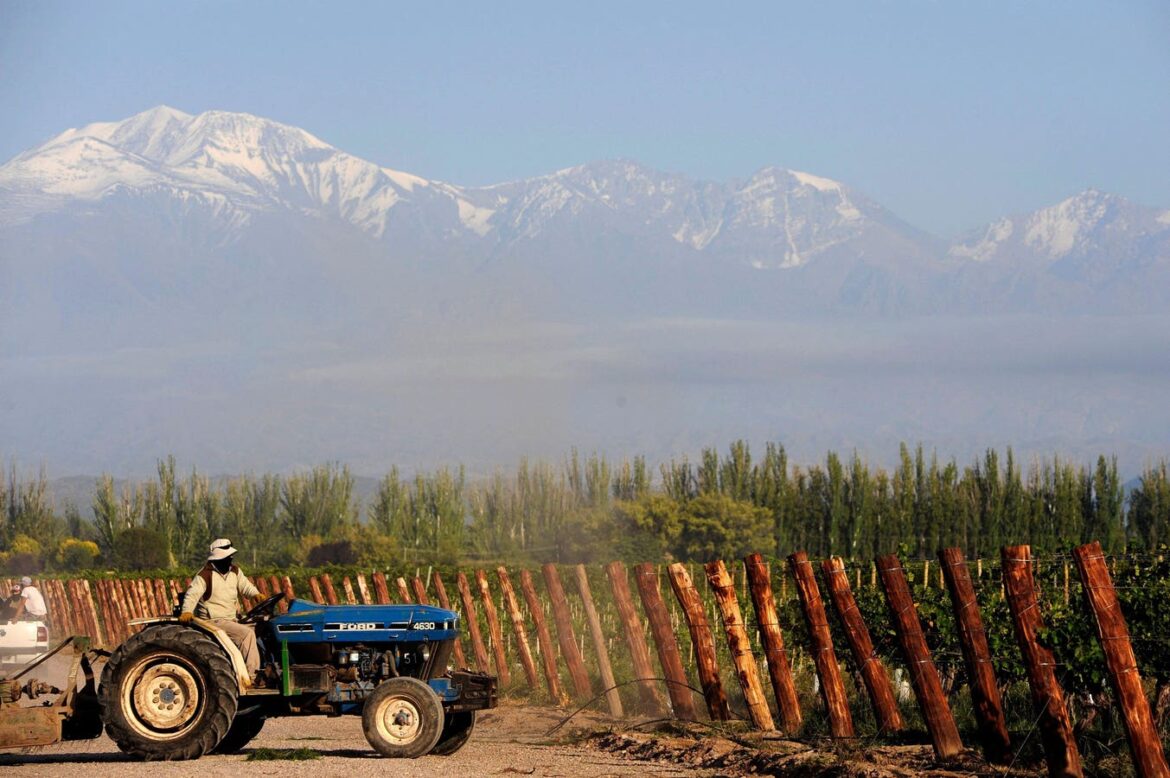A man works on a tractor at the vineyards of the Catena Zapata winery in the Mendoza province of … More Argentina.
AFP via Getty Images
As sustainability moves from talking point to a core focus for every industry, winemakers face a pivotal moment where tradition intersects with innovation.
Argentina, one of the leading wine producers in the Americas, has increasingly seen a greater number of its wineries certified in sustainability with the support of Wines of Argentina (WofA) within the last year.
Argentina has experienced significant growth in its wine market in recent years, as Statista reports. In 2024, Argentina’s wine market is expected to generate $2.83 billion in domestic revenue and $2.17 billion from out-of-home sales. The market is projected to grow by 7.88% between 2024 and 2029, reaching a volume of $4.13 billion by 2029.
Grupo Avinea, a leading wine producer in Argentina, has been making significant strides in sustainability. As the industry grapples with the challenges of climate change and resource management, Grupo Avinea’s leadership touts to be driven by a deep commitment to organic viticulture and environmental stewardship
One of the cornerstones of Grupo Avinea’s sustainability efforts is organic production.
“For us, organic production aligns with our winemaking philosophy, which is centered on producing wines that reflect the purity of the fruit and the unique terroir of each location. While favorable climate conditions like limited rainfall and intense sunlight contribute to plant health, they alone are not sufficient to ensure successful organic viticulture,” Andrés Valero, head of sustainability at Grupo Avinea, tells Forbes. “It is essential to explore and map the soil profile and carefully select the appropriate planting framework, including rootstocks and vines, for precision viticulture. This knowledge—combined with agro-ecological practices and biodiversity studies—enables us to produce wines in harmony with the environment.”
Juan Pablo Murgia, head winemaker at Grupo Avinea, highlights the critical importance of understanding the soil profile and selecting appropriate planting frameworks to achieve successful organic viticulture. This approach, combined with agro-ecological practices and biodiversity studies, allows the vineyards to thrive in harmony with the environment.
MORE FROM FORBES ADVISOR


“When organic philosophy merges with science and the detailed precision viticulture applied to each vineyard under the concept of partialization and micro-terroir—respecting each piece of soil’s identity, its heterogeneity, diversity and impact on each small area of the vineyard—it enhances the profile of the wines through the natural strengths of the terroir,” Murgia says.
Water management is another area where Grupo Avinea has implemented rigorous practices to ensure sustainability. In Mendoza, where the region receives minimal rainfall and relies heavily on water from the Andes Mountains, the company has introduced innovations such as drip irrigation systems and weather stations to optimize water usage.
“Water is crucial for the development of any agriculture and industrial project,” Valero notes, emphasizing the importance of tailored irrigation plans and the reuse of water in the winery to conserve resources. “Within the winery, most of the water usage is used for sanitation. We monitor daily water consumption and reuse cleaning solutions up to five times. After usage, all wastewater is reconditioned at our wastewater treatment plant and used to irrigate five hectares of crops.”
Energy efficiency is equally crucial in Grupo Avinea’s operations. The company has been proactive in measuring electricity consumption in real-time and implementing efficiency plans across its operations. These initiatives not only reduce the environmental footprint but also enhance overall production efficiency.
Grupo Avinea is also a founding member of the Sustainable Wine Roundtable (SWR), a global collaboration aimed at promoting sustainability across the wine sector. Valero emphasizes the importance of cooperation in achieving sustainable development.
“It was essential to create a platform for sharing best practices and establishing policies and standards that could be universally adopted by wine producers, distributors, importers and sellers,” Valero says. “In a short span, SWR has helped to address issues such as bottle weight by laying out a clear roadmap as well as establishing sustainability benchmarks for the industry. Notably, the work done in this regard has influenced the enhancement of the sustainability protocol for the development of the Argentinean wine industry.”
One of the most ambitious goals for Bodega Argento, Argentina’s largest organic wine producer and one of the brands under the Grupo Aviena umbrella, is its pursuit of becoming a zero-waste winery. The winery currently reuses or recycles 97% of its waste, with a target to increase this to 99% within five years. The company is also exploring alternative waste materials that have positive social impacts and collaborating with organizations to enhance its recycling streams.
“Adopting sustainable winemaking practices is both a responsible choice and a strategic advantage,” says Valero. “For winemakers in Argentina and globally looking to enhance their sustainability efforts, the transition doesn’t happen overnight. Many have likely already incorporated some sustainable practices without recognizing them as such.”
Through these initiatives, Grupo Avinea not only positions itself as a leader in sustainable viticulture but it also aims to set a benchmark for the global wine industry.
“It’s crucial to map or assess which sustainability issues are essential for the region and identify existing strengths,” says Valero. “Referencing established protocols for the area can help pinpoint which practices are most accessible. In other words, you can start small but with a clear objective in mind.”

